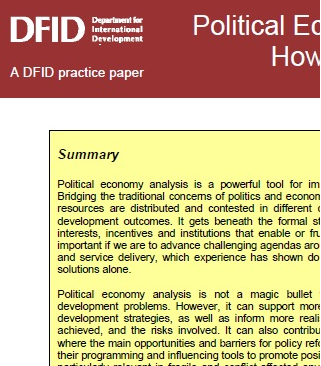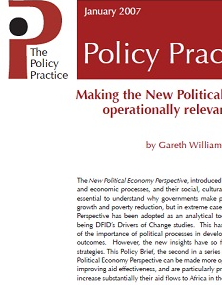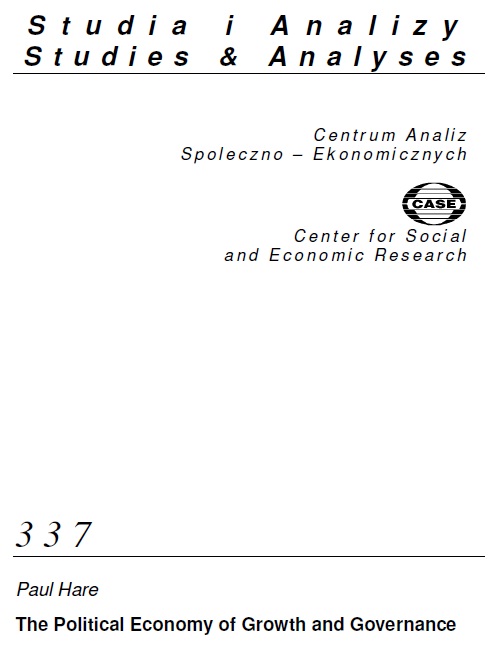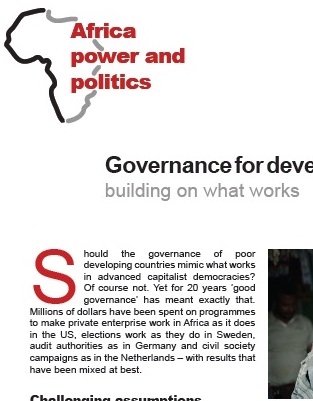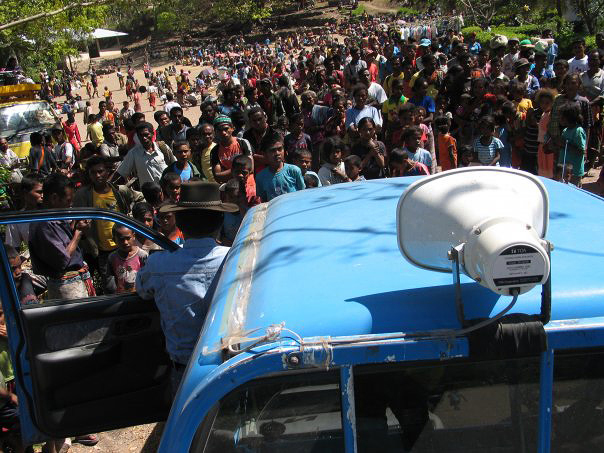
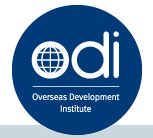 Next Tuesday, October 25th, the Overseas Development Institute (ODI) is hosting a free evening event examining the interplay of politics and development aid from a political economy perspective. Called “Putting Politics into Practice? Political Economy Analysis and the Practice of Development”, the event is being held at ODI’s London headquarters. Members of the public are welcome to attend.
Next Tuesday, October 25th, the Overseas Development Institute (ODI) is hosting a free evening event examining the interplay of politics and development aid from a political economy perspective. Called “Putting Politics into Practice? Political Economy Analysis and the Practice of Development”, the event is being held at ODI’s London headquarters. Members of the public are welcome to attend.
What is political economy analysis? According to the DfID, it is the bridging of the traditional concerns of politics and economics, focusing “on how power and resources are distributed and contested in different contexts, and the implications for development outcomes. It gets beneath the formal structures to reveal the underlying interests, incentives and institutions that enable or frustrate change.”
“Putting Politics into Practice?” builds upon a previous dialogue convened by ODI in 2010 on how development actors might go about incorporating political insights into their work. While there has been growing recognition that aid effectiveness is intertwined with political context and culture, translating these insights into real changes in development practice has not been easy. This would mean, for example, that instead of working to rigid guidelines of ‘best practice’, development programs and projects should instead be based on models of ‘best fit’.
Speakers at the event will be Alex Duncan, who, having worked at the World Bank and FAO is now Director at The Policy Practice; ODI Research Fellow Alina Rocha Menocal, and Stefan Kossoff, the Political Economy Analysis and Governance Lead at the UK Government’s Department for International Development (DfID).
Co-hosted with DAI, this event will also serve as the launch for a special issue of DAI’s annual journal, Developing Alternatives, on political economy analysis.
The event is open to the public, and it will also be streamed live for those unable to attend in person. Registration is required in both instances, and can be done via ODI’s dedicated event website.
Background Material
Political Economy Analysis‘How To’ Note There are an increasing number of political economy tools available to development agencies for a range of analytical and operational purposes. This note from the Department for International Development (DfID) brings together these tools with a view to explaining the relevance and uses of political economy analysis. |
Making the New Political Economy Perspective More Operationally Relevant for Development AgenciesThis Policy Brief, the second in a series prepared by The Policy Practice, discusses how the New Political Economy Perspective can be made more operational. The issues it raises are central to debates about improving aid effectiveness, and are particularly pressing in the context of commitments by rich countries to substantially increase their aid flows to Africa in the face of challenging governance conditions. |
A joint Asia Foundation and Carnegie Endowment discussion on “Moving from Theory to Practice on Political Approaches to Development“
The Political Economy of Growth and GovernanceThis paper provides a framework within which to think about the political economy of growth. It summarizes the five key factors: good government, with secure political conditions; credible macroeconomic stability; savings and investment high enough to sustain adequate growth; openness to the world economy; and the discipline of external engagement. The author argues that the growth model needs to be underpinned by suitable governance arrangements. |
Governance for Development in AfricaBuilding on What Works This Africa Power and Politics policy brief argues that the right approach to governance for development is ‘best fit’, not ‘best practice’; that implies being prepared to question the ideological forces, vested interests and political pressures that promote institutional mimicry at global and country levels. Note:For an (informal) response to this paper by Duncan Green, Oxfam UK’s head of research, please click here. |


